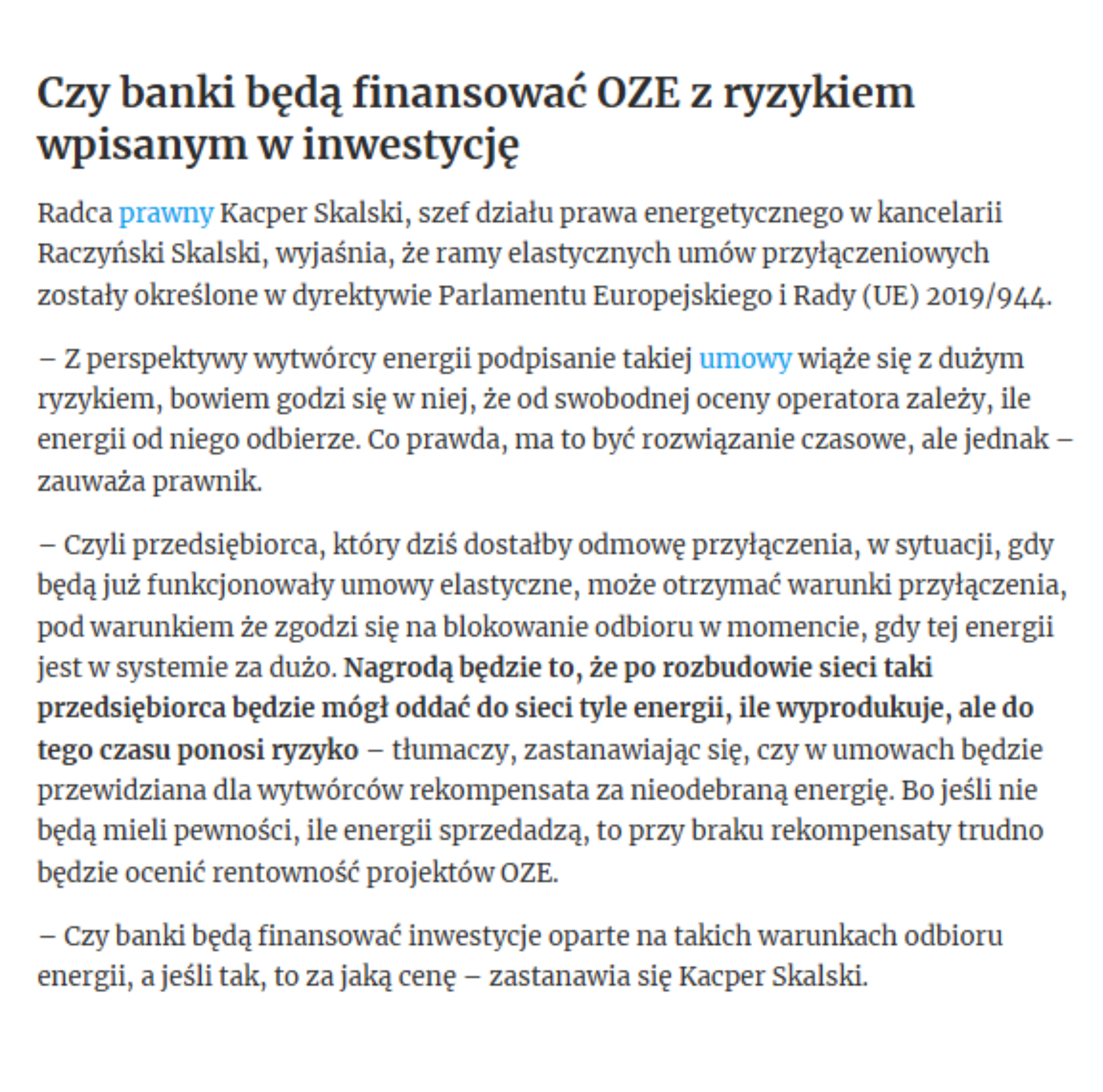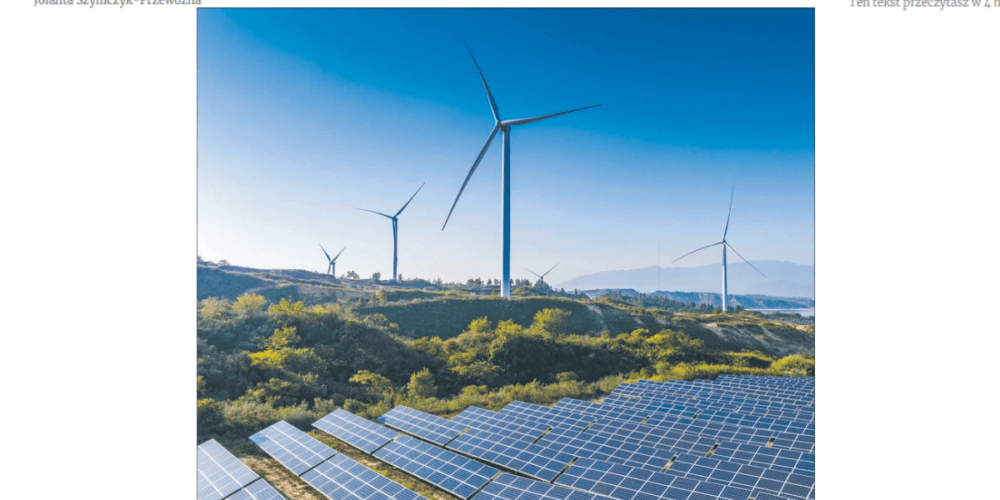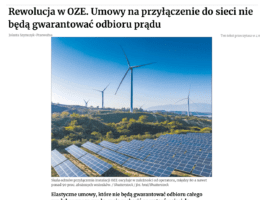On January 27, 2025. The Prime Minister’s Office presented the assumptions for the amendment of the Energy Law. The purpose of the draft amendment to the Energy Law is to:
- strengthen the position of the end customer of electricity;
- streamlining the process of connecting consumers to the power grid;
- optimizing the use of existing energy infrastructure to implement EU regulations;
- expanding rights for entities seeking to connect to the grid in areas where there are restrictions on connecting new entities by introducing non-guaranteed flexible connection agreements;
- introduction of an obligation to offer an electricity contract with a fixed price for a fixed period;
- publication by the DSO of information on the connection capacity for new connections and the criteria for its calculation;
- informing applicants of the status and processing of the connection application within 3 months of submission of the application;
- Enabling transmission of grid connection applications electronically;
- Introducing an obligation for cooperation between DSOs and TSOs in reporting connection capacities for new connections.
In addition, the draft amendment to the Energy Law provides for other equally important changes such as, changes to the tariff system, expansion of the powers of the President of the Energy Regulatory Office, expansion of the list of violations subject to penalties imposed by the President of the Energy Regulatory Office, introduction of facilitations in the grid connection process, introduction of processes to increase the number of facilities to be connected, and many others.
The following is a commentary by Kacper Skalski, Head of our Firm’s Energy Law Department, on the presented assumptions for the amendment of the Energy Law and, in particular, flexible connection agreements.






